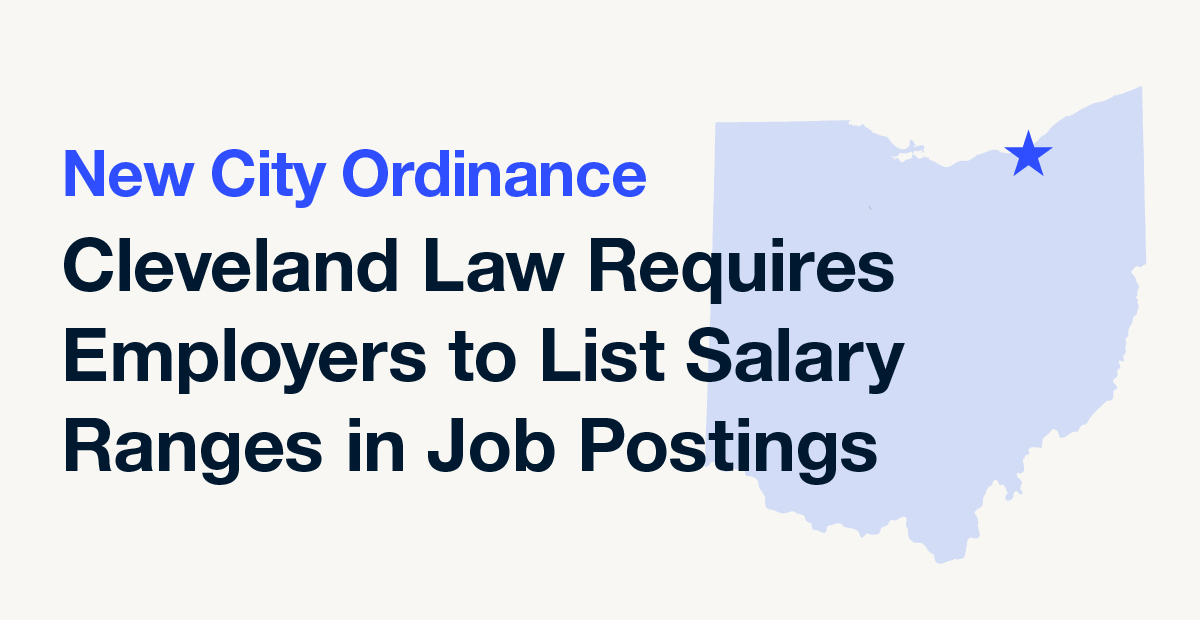New Cleveland Law Requires Employers to List Salary Ranges in Job Postings
Posted in In the news on April 30, 2025

By mid-2025, employers in Cleveland will be required to include salary ranges in job postings and will no longer be allowed to ask applicants about their current or past salaries. Noncompliance with these regulations could result in fines of up to $5,000.
The new law, which the Cleveland City Council unanimously passed, is part of a larger initiative to address wage gaps related to gender and race. It will take effect in six months, providing time to educate both employers and workers.
Who’s Covered
The law applies to employers with 15 or more employees in Cleveland. This includes private businesses, staffing and employment agencies, and the city. It does not apply to federal or state government employers, independent contractors, or roles where the pay is already set by a union contract.
What’s Required
- Employers must list a salary range or scale in every job posting.
- The requirement covers all types of work, from full-time, part-time, seasonal, to temporary, as long as the job is located in Cleveland or reports to a Cleveland-based office.
- Employers may discuss salary expectations with candidates but cannot ask about or rely on prior salary history when making hiring or pay decisions.
The law aims not to penalize businesses but to promote transparency and fairness in the hiring process. Its objective is to ensure that employees are compensated based on the value of the job itself rather than their previous salaries. By doing so, the law seeks to empower job applicants with better information, allowing them to negotiate more effectively and helping break the underpayment cycle. It will also help create a fairer landscape and increase wages overall, particularly for women and people of color who are frequently impacted by pay inequalities.
According to the Center for Community Solutions, as of 2023:
- In Cuyahoga County, women earned 81.8 cents for every dollar earned by men.
- White women earned 80 cents, Asian women earned 94 cents, Black women earned 66 cents, and Hispanic women earned just 58 cents compared to white men.
- The Economic Policy Institute found that wage transparency laws can increase pay by up to 7% for low-wage workers, particularly benefiting historically marginalized groups.
- Nationally, the gender pay gap continues to exist. Pew Research reports that in 2022, women in the U.S. earned an average of 82 cents for every dollar earned by men, a figure that has seen little change over the last 20 years.
Cleveland has joined other major cities in Ohio, such as Columbus, Toledo, and Cincinnati, by adopting similar pay transparency laws.
View the full ordinance here: Ordinance No. 104-2025